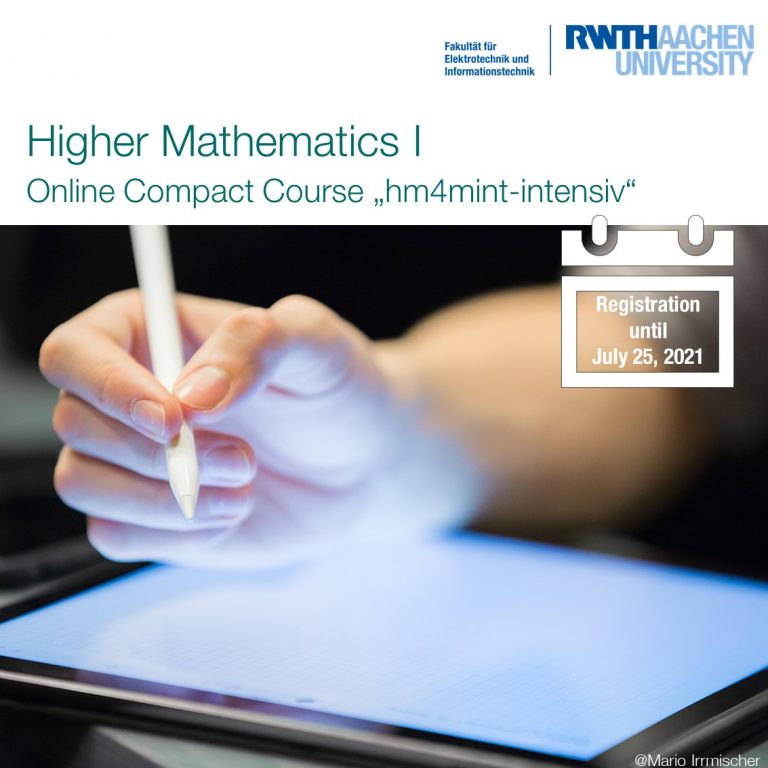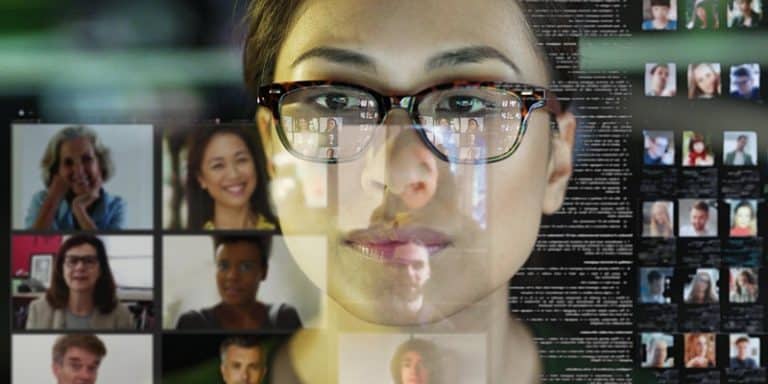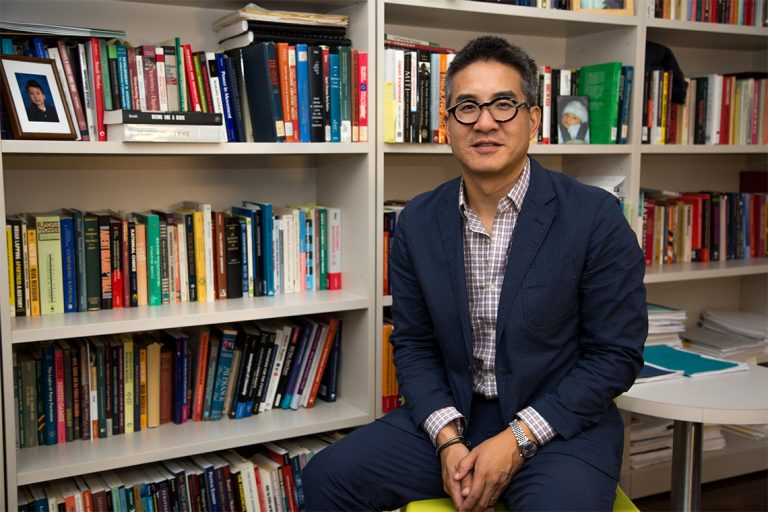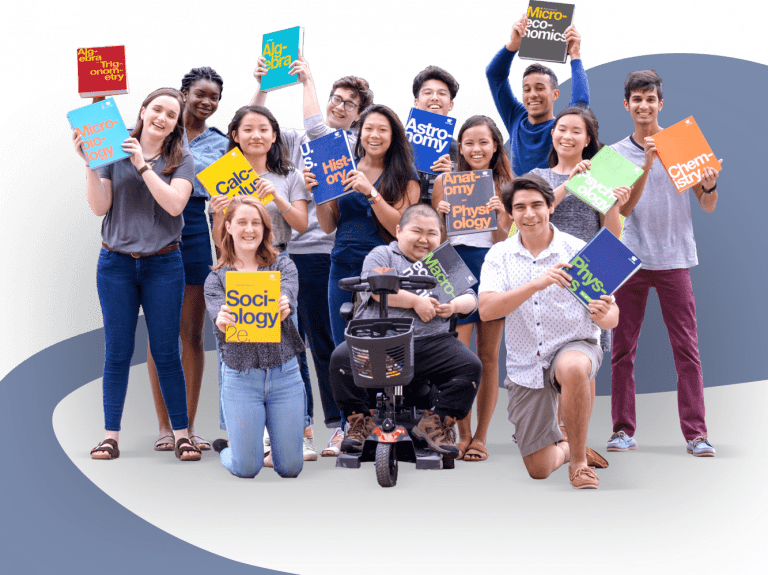The first Online Education Dialogue (OED) of 2024 was successfully held from 8:00 PM to 9:15 PM Beijing Time on March 21st, 2024. Co-hosted by the Global MOOC and Online Education Alliance (GMA), Tsinghua University, XuetangX, and UNESCO International Institute for Information Technologies in Education, OED has become a flagship initiative of the Alliance with 330+ expert speakers, attracting over 1 million global audiences.
Peng Gang, Chair of the Executive Committee of the Global MOOC and Online Education Alliance, delivered the opening remarks for the session. 4 guest speakers including Abdeljalil Akkari (Professor and the Director of the Research Group on International Education at the University of Geneva), Dominik Lukeš (Assistive Technology Officer at University of Oxford’s Centre for Teaching and Learning), April Wang (Assistant Professor at ETH Zürich Department of Computer Science) and Zhang Yu (Associate Professor and Vice Dean at Tsinghua University Institute of Education) engaged in an illuminating discussion around the theme “AI-Empowered Higher Education.” Brian (Yifan) Li, Senior Manager of GMA, hosted the session. The dialogue was broadcast live on XuetangX with a global audience of over 3,500 views.
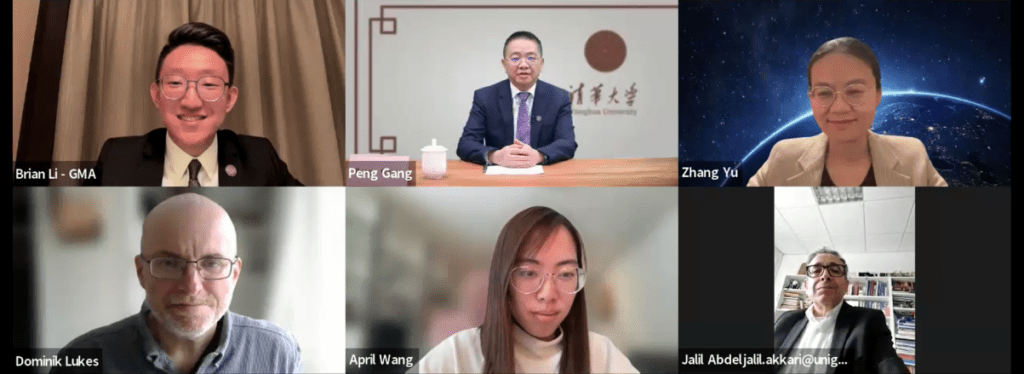
From left to right, first row: Brian (Yifan) Li, Peng Gang, Zhang Yu
From left to right, second row: Dominik Lukeš, April Wang, Abdeljalil Akkari
In his address, Peng Gang announced the opening of 2024 Online Education Dialogue series with strategic visions and his extensive expertise in academia and leadership. In his opening remarks, Peng reiterated the importance of communication, exchange, and mutual learning among university leaders, frontline educators, scholars, and students in the era of artificial intelligence. Peng then outlined the three key pillars in exploring AI’s impact on the higher education landscape, including empowering teaching and learning, facilitating research and innovation, and transforming university itself. In particular, Peng spoke insightfully about the infinite possibilities AI brought to us, as well as pivotal questions regarding “how we teach, how we learn, how we assess, and the direction in which education is heading.” As the Chair of the Executive Committee of the GMA, Peng extended a sincere invitation for researchers and practitioners dedicated to utilizing artificial intelligence to shape the future of higher education to join the OED. His remarks re-emphasized the significance of openness, cooperation, and resillience in the landscape rapidly reshaped by artificial intelligence.
After the opening remarks, the dialogue moved into keynote speeches. Abdeljalil Akkari delivered his speech on the transformative potential of artificial intelligence in higher education. Akkari underscored AI’s role in accelerating ongoing shifts within universities, including adapting curricula to meet evolving job market demands, integrating soft skills into education, and navigating the challenges and opportunities of distance learning. In addition, Akkari’s remarks called for actions in closely examining the potential of artificial intelligence to enhance students’ critical thinking skills as exemplified by a three-stage learning process: leveraging AI as a catalyst for idea generation, facilitating critical analysis, and fostering autonomous knowledge construction. As higher education embraces AI, Akkari concluded that universities would undergo profound changes, characterized by increased emphasis on distance learning, soft skills, and transformed assessment methods.
Dominik Lukeš opened his speech with a holistic overview of the development of generative artificial intelligence tools. Lukeš underscored the transformative potential of artificial intelligence in reshaping traditional teaching and learning practices and noted the complexities inherent in the AI landscape by discussing the proliferation of diverse AI products and their myriad applications in education. Despite acknowledging the remarkable progress, Lukeš cautioned against succumbing to overhype, urging stakeholders to maintain a nuanced understanding of AI’s capabilities and limitations and to seek the delicate balance between recognizing AI’s empowering potential and mitigating inherent challenges, such as hallucination and unpredictability. Lukeš concluded his remarks by offering pragmatic strategies for facilitating AI integration in higher education institutions, including the establishment of specialized services and competency centers, demonstrating a commitment to responsible and effective AI implementation.
Leveraging her expertise in human-AI collaborative approach, April Wang provided a comprehensive analysis of the challenges and opportunities in programming education in the era of AI. Wang delved into the complexities of programming learning, citing intrinsic challenges like abstract reasoning and extrinsic hurdles such as diverse learner profiles and scalable instructional materials. Emphasizing the potential of AI in offering personalized learning experiences and immediate feedback, Wang underscored the importance of maintaining a balance between AI support and human instruction to foster engagement, adaptability, and community-building within educational contexts. Through her insightful discourse, Wang advocated for a collaborative approach that harnesses the synergies between humans and AI to drive innovation and enhance the learning experience in programming education.
Zhang Yu analyzed the considerations and implications of integrating generative AI into university teaching. Zhang articulately opened her discussion with the historical evolution of learning mediums, from traditional printed materials to online resources like MOOCs, and now to the emerging role of AI in formal education settings. Zhang proposed a two-dimensional framework for evaluating AI’s impact, considering both individual and social aspects of learning, and distinguishing between task-related outcomes and broader human development. Zhang then shared insights from her own course, where AI teaching assistants were employed, highlighting patterns of student interaction and perceptions of AI’s accessibility, reliability, and efficiency compared to traditional learning resources and human instructors. By analyzing student behaviors and attitudes, Zhang underscored the complex interplay between AI technology and human learning experiences, emphasizing the need for further research to fully grasp its implications on educational practices and social dynamics. Overall, Zhang’s reflection shed light on the evolving role of AI in education and prompted deeper exploration into its potential benefits and challenges.
During the panel discussion, Wang’s insights highlighted the necessity of aligning AI assistive tools with specific learning objectives. While emphasizing the importance of balancing hands-on practice with AI assistance, Wang underscored the potential of AI to lower barriers and foster creativity, particularly for beginners in computational thinking. Wang cautioned audiences against overlooking the importance of testing effectiveness and called for proactive development of guidelines and methods to ensure meaningful integration and long-term success.
In his reflection, Akkarai emphasized the importance of using artificial intelligence in education in a collaborative and collective manner rather than in isolation. He cautioned against the risk of AI usage diminishing diversity of opinions and marginalizing voices, advocating instead for its integration through dialogue and discussion between students and professors. By promoting collective use, Akkarai believed that AI could enrich classroom discourse and enhance learning outcomes, highlighting the need for diverse approaches to AI integration in education. Akkari also noted the complexity of using artificial intelligence to reduce education inequalities given the already unequal resource distribution in many dimensions.
Zhang restated the importance of considering the collective use of artificial intelligence in education to prevent the marginalization of voices and promote diverse discourse. Zhang also highlighted the pressing needs of evaluating AI accessibility across various dimensions, ensuring it benefits all students regardless of their proficiency levels and addressing potential digital divides to promote inclusive learning environments. In addition, Zhang spoke about increasing awareness of unequal access to resources caused by students’ socio-economic backgrounds.
Lukěs highlighted the transformative impact of AI in education, particularly in terms of financial accessibility and linguistic support. He discussed how AI platforms can significantly lower the financial barrier to education compared to traditional expenses like textbooks. Additionally, Lukěs expressed excitement about AI’s multilingual capabilities, noting that it enables access to content and resources for speakers of various languages, including those with cognitive disabilities like dyslexia or ADHD. He emphasized AI’s role as a companion, helping individuals navigate the educational landscape and empowering them to overcome cognitive or social challenges, ultimately enhancing their learning experiences. Lukěs also advocated for understanding the complexity of linguistic capabilities. For example, how English could serve as an equalizer but also create gaps.
The insightful remarks and engaging dialogues shared during the dialogue underscored the critical importance of thoughtful integration of AI in higher education. Speakers provided valuable perspectives, highlighting both the opportunities and challenges presented by AI implementation. Their contributions enriched the ongoing conversation on the future of education and emphasized the need for careful consideration and proactive measures to harness the full potential of AI in learning environments. Please stay tuned for OED Session 2.


